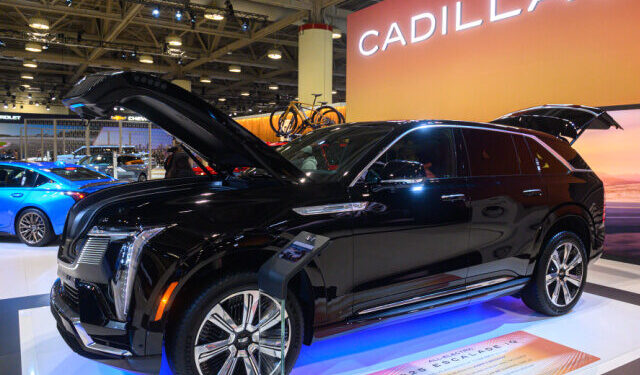General Motors just made a sharp U-turn — and not toward the climate alarmists in D.C.
The auto giant announced this week it will ramp up production of gas-powered SUVs and pickup trucks at its Orion Assembly plant in suburban Detroit starting in 2027. The move includes iconic American models like the Cadillac Escalade, Chevrolet Silverado, and GMC Sierra — all still in high demand despite years of media and political pressure to force electric vehicles onto the public.
In GM’s own words, the expansion is to “help meet continued strong customer demand.” Translation: Americans still want reliable, powerful gas vehicles — not federally subsidized plug-ins with limited range and inflated sticker prices.
This shift marks a major backtrack from GM’s previous green pledges. Just three years ago, CEO Mary Barra touted a sweeping vision to exclusively offer electric vehicles by 2035, citing environmental concerns over tailpipe emissions. But that so-called “aspiration” now looks more like corporate appeasement than common-sense business.
Barra’s sustainability chief had claimed EVs would be the “successful business model of the future.” Yet today, the market is sending a different message — and GM is finally listening.
Despite a modest bump in EV sales, demand overall has fallen flat. Dealerships are overloaded with unsold electric inventory, and everyday Americans remain skeptical of sky-high prices, unpredictable battery life, and government interference in consumer choice.
GM’s renewed investment in domestic gas vehicle production — reportedly topping $4 billion — follows President Trump’s earlier implementation of 25% tariffs on foreign cars and parts. The move aimed to bring manufacturing back home and level the playing field for American workers. Now, it appears to be working.
Instead of pouring billions into unpopular EV infrastructure, GM is reinvesting in the backbone of American auto production — jobs that build dependable trucks and SUVs for the people who actually drive them.
This isn’t just a business pivot — it’s a market correction. For years, government-backed EV mandates and ESG-fueled hype distorted reality. Wall Street cheered vaporware startups. Media outlets parroted talking points. And bureaucrats tried to engineer a future Americans never asked for.
Now, as the EV mirage fades, the pendulum is swinging back. Consumer choice — not central planning — is leading the way. And General Motors, like other legacy automakers, is adjusting course to survive.
Ford, Mercedes, Volkswagen, and others have also begun scaling back or delaying electric rollouts. Why? Because the American public still values freedom — including the freedom to drive what works.
GM’s new announcement is a step in the right direction. The combustion engine isn’t just alive — it’s roaring.




















